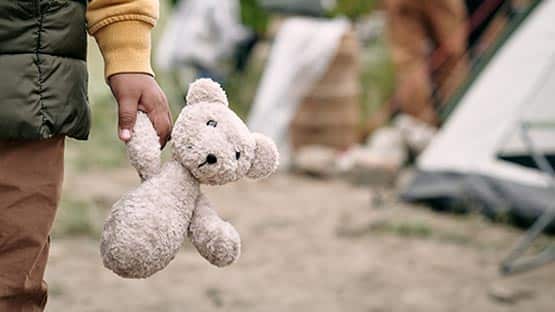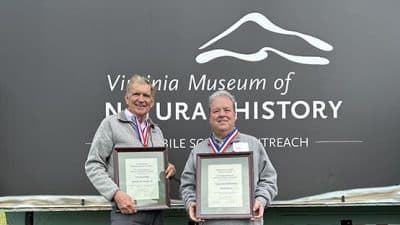
The number of families experiencing homelessness is growing in Waynesboro in large part due to one life event that throws the household into crisis.
Schools in Waynesboro currently have 71 students who are unhoused due to evictions or natural disasters such as a flood or fire. While some families find shelter with a friend or family member, others are living in motels, cars or tents.
In 2021, the school system had only three unhoused students. During the pandemic, there was a national moratorium on evictions for nonpayment of rent. Most utility companies followed suit and did not shut down any services for nonpayment. Child tax credits for the years of the pandemic also increased.
With many of those supports now gone, Dr. Ryan Barber, assistant superintendent for Waynesboro Public Schools, said an increasing number of families are desperate and asking the school system for help.
“What we’ve struggled with a lot this year is people who have been evicted,” said Barber. “They just have no place to go.”
Waynesboro is known for being a service city with a median income of just over $52,000. In comparison, nearby Augusta County has a median income of $76,124. Waynesboro’s median income is also lower than Staunton, Highland County and Nelson County, according to U.S. Census data.
When a fast-food worker makes $15 an hour, and their rent is $1,700 per month, it’s almost impossible to make ends meet – especially when the unexpected happens – for example, their car breaks down or they have a medical emergency and no insurance or a high deductible.
Barber said that in addition to him, the school division’s three social workers and aides are often the ones who hear the pleas for help.
“Moms and dads call up and ask if they can be put up in a hotel for several days,” Barber said. “’I’m going to sleep outside if you don’t help me.’ There’s no wiggle room for families. There’s no money to pay for a new engine or a car.”
The school system can often help struggling families through Project Hope. The funding for the program is authorized under the McKinney-Vento Homeless Education Assistance Act and administered by William & Mary for the Virginia Department of Education.
Waynesboro, Staunton and Augusta County share a $50,000-a-year grant to help meet the short-term needs of families in crisis.
“Our families are reaching out, and they’re asking for a lot at times,” Barber said. “They ask for help to pay their rent. I can’t do that, but I sure can help you with a kind of temporary arrangement, and I can help with clothes or shoes for your kid.”
The grant funds can be used for anything that helps a child be ready to access their education.
Barber said he can buy groceries, clothes, shoes and glasses for kids. The funds can be used for a needed doctor’s appointment or immunizations. The funds cannot be used to pay rent or a light bill. However, if a family is evicted or faces another emergency, the funds can be used to pay for a hotel stay for a few days. If the child is a student in Waynesboro, and has to move to Staunton to live a motel, for example, the school system can even provide transportation for the student so that even in the chaos, the student’s in-person education continues as normal as possible.
Barber credits the school system’s social workers for connecting families to resources throughout the community. School staff and teachers have also had training to recognize the signs of homelessness -coming in late or picked up early, poor attendance, wearing the same clothes, not bathing among them – which can lead to the school system reaching out proactively to families that appear to be struggling to make ends meet.
“The whole idea behind Project Hope is there is hope. We do have some resources,” he said. “When your life is kind of crumbling around you, we can help … so while everything else is going kind of haywire for you, we try to maintain the stability of the child so that they are able to continue to grow and not be so dramatically uprooted by the trauma that has to be for them.
“Folks like you and I,” Barber said to AFP, “who are able to just go to the grocery store and buy food, and we can pay the light bill, we kind of take for granted that yeah, money is in our account. There are many people who just don’t have that luxury.”
With the grant funding, the school division, under the leadership of Barber, is doing its best to support kids and families.
“I think what I found is that when kids are OK and well cared for, parents are less worked up and upset about their situation, because they know their kids are OK.”
Barber said he worked with an unhoused parent last year who needed help to find a shelter for her family, and the closest shelter with availability for her family was in Roanoke.
“I think there’s a misconception that a lot of people have that if you’re unhoused, it’s because you’ve made some bad choices or you’re not working.”
That just isn’t the case, Barber said. Some of the unhoused parents have college degrees.
“These are real people that life has really dealt some unfortunate cards to,” he said. “Don’t get me wrong. There are some people in the group who are making horrible choices and doing things that are never going to help them get a leg up. However, it’s far more the opposite.”
Barber said that staff members and community members often step in to help families in need.
“That’s the thing I love about being here in Waynesboro,” he said. “In this community, when there’s a need, this community does step up, and we support kids and families. I’ve got staff members who want to help. And the grant funding helps all of that kind of go farther.
“There are many families in Staunton, Augusta County, and I think more acutely, in Waynesboro, who have no safety nets when life happens. And they can find themselves in a situation where they have no place to live – kind of in a heartbeat. And they’re scrambling around to find resources.”
Barber said 71 students is likely underestimating the true number of unhoused households in the school system. He expects the number to continue to climb and likely reach 100 by the time the school system completes its Census in March.
“I’m sure there’s a lot we don’t know about,” he said. “I think that there’s probably a pride thing that comes in for a lot of folks, and they just don’t want to admit where they’re at. Sometimes we find that a family is struggling through poverty … They might not have the nicest house, but they are housed and have running water. They just don’t have money for the extras … we’re able to help with those kind of things.”
If there is one huge need in the community that could help those who struggle the most, Barber believes it’s a one-stop shop in a school or other building for families to receive medical care and mental health support at little to no cost.
“We haven’t gotten to that place,” Barber said. “I keep writing it in every grant I have because that’s a huge need.”
He said that many times when a child is behaving poorly, it’s because they have a rotten tooth or other medical issue and haven’t been able to get care due to the perceived cost.
“And they’re miserable and irritable because they are in so much pain,” he said. “There are some talks about what that could look like in Staunton, Augusta and Waynesboro. It’s on the table, but it’s something we haven’t been able to get off the ground.”
By the numbers: Unhoused students in Waynesboro schools
- Westwood Elementary School: 20
- William Perry Elementary School: 13
- Waynesboro High School: 11
- Kate Collins Middle School: 11
- Wenonah Elementary School: 7
- Wayne Hills Elementary School: 5
- Berkeley Glenn Elementary School: 4










